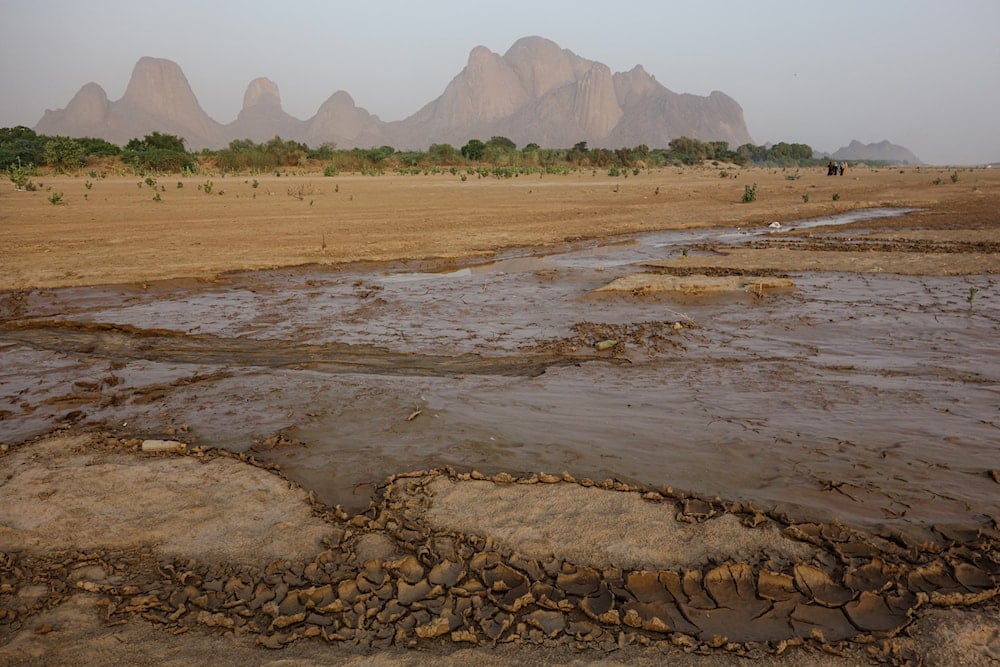Sudan faces severe water crisis amid war, soaring temperatures
Despite its abundant water sources, including the Nile River, Sudan has long struggled with water scarcity.
-

A general view of the low waters of the Gash River, a seasonal lifeline that people rely on for agriculture and drinking, as it begins its flow through Kassala State, some 600 kilometers from the Sudanese capital Khartoum on June 6, 2024. (AFP)
War, climate change, and man-made shortages have plunged Sudan into a severe water crisis, adding to the nation’s existing struggles.
In the scorching heat, with temperatures exceeding 40 degrees Celsius (104 degrees Fahrenheit), 65,000 residents of the Sortoni displacement camp endure the impact of the ongoing conflict between Sudan's army and the paramilitary Rapid Support Forces (RSF).
When the conflict erupted over a year ago, most foreign aid organizations, including the one operating Sortoni's local water station, had to cease operations, leaving residents to fend for themselves.
Despite its abundant water sources, including the Nile River, Sudan has long struggled with water scarcity. According to the United Nations, before the war, a quarter of the population already had to walk over 50 minutes to access water.
Now, from Darfur’s western deserts through the fertile Nile Valley to the Red Sea coast, the water crisis affects 48 million Sudanese.
In North Darfur’s capital, el-Fasher, besieged by RSF, deadly clashes threaten water access for over 800,000 civilians.
Just outside the city, fighting over the Golo water reservoir "risks cutting off safe and adequate water for about 270,000 people," the UN children's agency UNICEF has warned.
UNICEF has warned that fighting over the Golo water reservoir just outside el-Fasher "risks cutting off safe and adequate water for about 270,000 people."
The UN Security Council has demanded an end to the siege of el-Fasher.
A European diplomat with extensive experience in Sudan’s water sector warned that if RSF doesn't allow fuel to enter the city, the water stations will stop working.
"For a large part of the population, there will simply be no water," he told AFP.
In Khartoum, located at the meeting point of the Blue Nile and White Nile rivers, residents suffer from a lack of water. The Soba water station, a key supplier for the capital, has been out of service since the war broke out, a local volunteer indicated.
He pointed out that people have had to buy untreated "water off of animal-drawn carts, which they can hardly afford and exposes them to diseases."
Another local volunteer told AFP that entire neighborhoods in Khartoum North have been without drinking water for a year.
"People wanted to stay in their homes, even through the fighting, but they couldn't last without water," he said.
Hundreds of thousands have fled to Port Sudan on the Red Sea, which also faces a major water crisis. The city relies on a single inadequate reservoir, and the influx of displaced people has exacerbated the problem.
Cholera cases have surged, with nearly 11,000 recorded between April 2023 and March 2024, as per Health Ministry data, and the outbreak comes with the majority of Sudan's hospitals shut down.
Read more: Darfur city's last hospital forced to shut down amid intense fighting

 3 Min Read
3 Min Read








